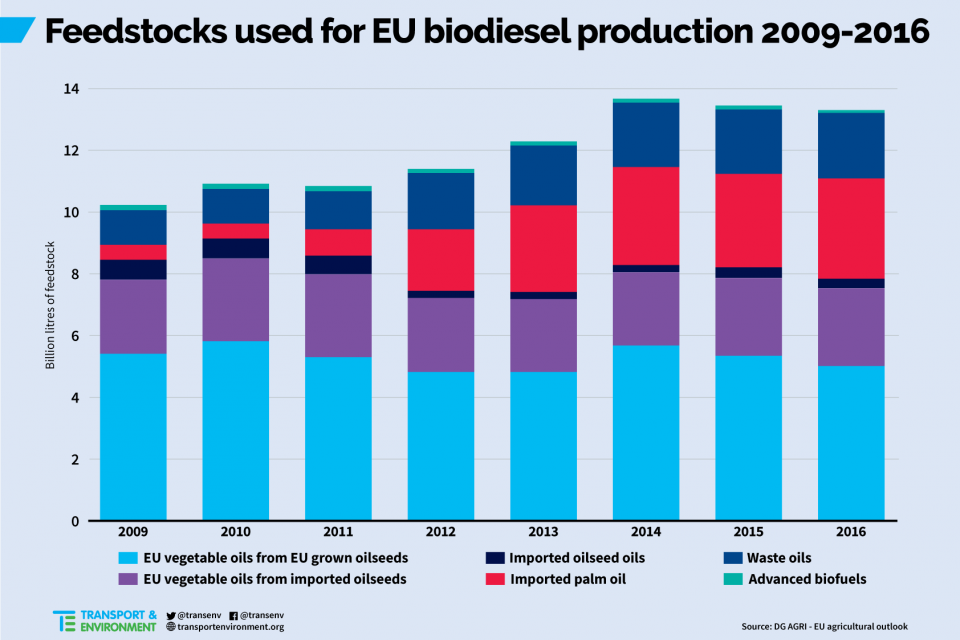False green diesel adverts land gas company with €5m fine

January 16th, 2020
One of the world’s largest oil and gas companies has been hit with the highest possible fine in Italy over a marketing campaign that claimed that its bio-diesel containing palm oil was “green”.
For the first time, the Italian Competition and Market Authority dished out the €5 million fine to Italian state-backed energy company Eni. The fossil fuel company consistently ranks toward the top of Fortune 500’s largest revenue-generating companies.
The Italian consumer organization Movimento Difesa del Citadino, the environmental NGO Legambiente and Brussels-based campaign group Transport & Environment (T&E ) filed the complaint against Eni over its biofuel advertising.
The fuel – known as Eni Diesel + – is a new form of diesel fuel with 15 per cent Hydrotreated Vegetable Oil (HVO) in its mix that is made from crude palm oil that generates indirect land-use change emissions.
Italy is the second largest producer of palm oil biodiesel in the EU, the majority of which is produced by Eni. The raw materials come mainly from Indonesia and Malaysia, two countries that have experienced significant deforestation linked to commercial palm plantations.
Regulators found that Eni’s marketing campaign that began in 2016 was deceptive as it advertised its “green” diesel as having a positive environmental impact as well as reducing emissions.
In addition to the fine, the Competition and Market Authority also instructed Eni to stop any further advertising under this campaign.

Palm oil’s role in biodiesel
While Europeans are reducing the amount of palm oil in their diet, there has been an increase in the product’s use in transport . Last year alone, over half of all palm imports were used for biodiesel fuel for cars and trucks.
A recent report from T&E found that over half of crops used to produce biodiesel in the EU are imported and not grown by European farmers.
In March 2019, the EU ruled that palm oil cannot be classified as a “green” fuel as it leads to deforestation. The bloc plans to reduce the use of the oil in diesel from 2023 and to eliminate it by 2030, with some exceptions.
Biofuels, such as bioethanol and biodiesel, can also be made from the likes of sugarcane, wheat and corn and animals fats.
[x_author title=”About the Author”]







